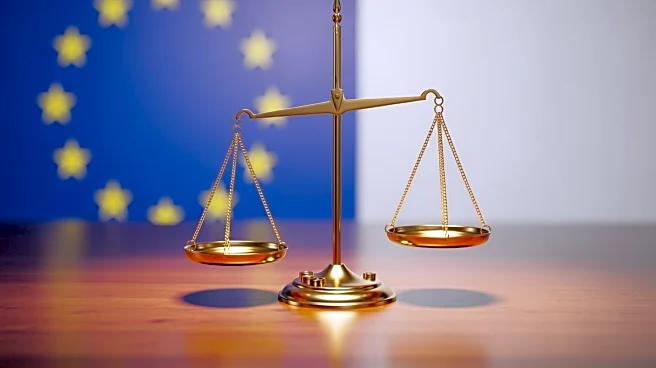What's Happening?
The European Parliament is a crucial forum for political debate and decision-making at the EU level. Its members, directly elected by voters in all member states, represent the interests of citizens in EU law-making.
Over the years, the Parliament has acquired substantial legislative and budgetary powers, allowing it to set the direction of the European project alongside the Council. The Parliament acts as a co-legislator, sharing the power to adopt and amend legislative proposals and decide on the EU budget. It also supervises the work of the Commission and other EU bodies, promoting democracy and human rights globally.
Why It's Important?
The European Parliament's role is vital for ensuring democratic representation within the EU. By directly electing its members, EU citizens have a voice in shaping legislation and policies that affect their lives. The Parliament's budgetary powers allow it to influence the allocation of resources across the EU, impacting economic development and social programs. Its supervisory role ensures accountability and transparency within EU institutions, promoting good governance. The Parliament's ability to scrutinize and amend legislative proposals ensures that diverse perspectives are considered, enhancing the legitimacy of EU decisions.
What's Next?
The European Parliament will continue to play a vital role in upcoming EU legislative processes, including decisions on international agreements and potential EU enlargements. As the EU faces challenges such as climate change, economic recovery, and geopolitical tensions, the Parliament's input will be essential in shaping effective responses. The upcoming European Parliament elections in June 2024 will be a significant event, potentially altering the composition and priorities of the Parliament.
Beyond the Headlines
The European Parliament's role extends beyond legislative and budgetary functions. It is a platform for promoting human rights and democratic values both within and outside the EU. The Parliament's engagement with citizens through petitions and initiatives fosters a sense of participation and ownership in the European project. Its cooperation with national parliaments strengthens the connection between EU and member state governance, contributing to a more integrated and cohesive Union.









